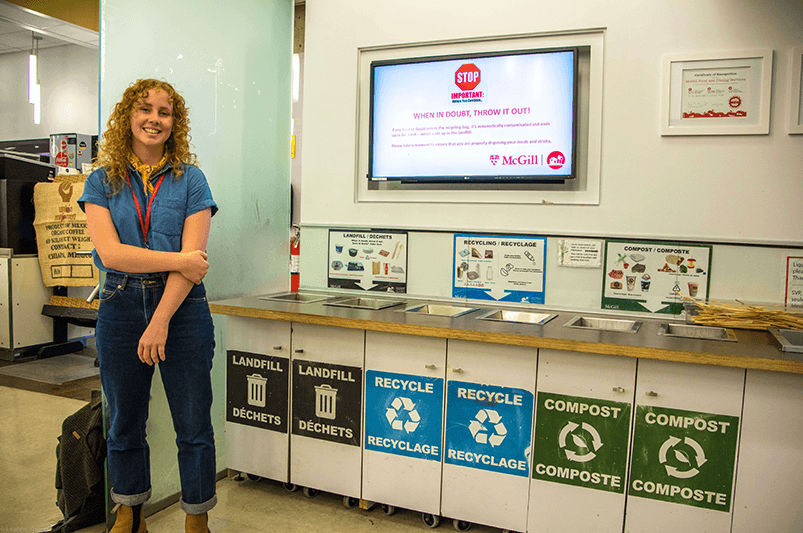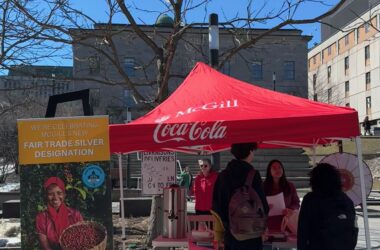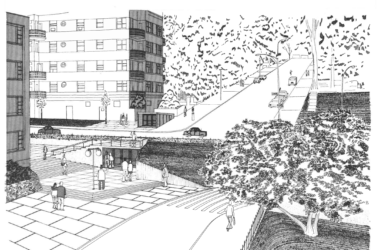Since 2015, McGill Student Housing and Hospitality has united a team of approximately 30 Waste Educators to engage with students about sustainability and the importance of waste segregation. This team aims to ensure that recyclable or compostable packaging does not end up in landfills. Waste Educators do this by helping first-year students sort their food waste by ecosystem and facilitating casual conversations about sustainable practices. This program takes place at the dining halls in Royal Victoria College, Bishop Mountain Hall, Carrefour Sherbrooke, New Residence Hall, and Douglas Hall three times a day for the first three weeks of the school year.
Sophie Doyon, a U3 Management student studying Managing for Sustainability with a concentration in Social Enterprise, is the sustainability coordinator for McGill Food and Dining Services. Part of her job is to run the waste education program.
“The students are very interested, so they’ll ask a lot of questions and the waste educators are there to intervene if they get confused or want help,” Doyon said. “Their main role is to guide the right waste sorting techniques and teach students who are excited to learn about it.”
Doyon explained that recycling and composting are important for reducing the amount of waste that goes into landfills, which limits greenhouse gas emissions. She also emphasized that although sorting your waste is a great step toward sustainability, the best thing to do is reduce your use of disposable goods.
Energy and enthusiasm from the Waste Educators is crucial for the program’s success. Karan Kumar, a second-year Masters student studying agricultural economics, is one of this year’s Waste Educators. He is passionate about sustainability and believes in the waste education program’s mandate to encourage collaboration.
“It’s a positive campaign that gives hope to the students that, if we take the small steps, we can work towards a sustainable world,” Kumar said. “There’s no blame game. We aren’t creating any hate campaigns over here. We’re just working together.”
The Waste Education program appeals to Kumar because it gives people real, concrete steps to help the environment.
“Everyone can do it,” Kumar said. “It’s not just people working in education. It’s you, me, doctors, engineers, students, anyone who can take the extra effort to segregate their waste, and not only in dining halls, but in their homes.”
Doyon has had many positive experiences interacting with curious first-years and says that McGill students are open and receptive to the initiative.
“Young people […] are great at helping the environment,” Doyon said. “They are really are excited to learn, and the more information we give them, the more skilled they are and the better they do at sorting their waste [….] They’re great at it already, so we’re just there to help out.”
Reactions from first-year students have largely been positive: Hannah Klemets, U0 Science, has found the Waste Educators useful for her and her residence peers who want to clear their cafeteria trays properly.
“I’ve seen multiple people almost throw perfectly fine things to recycle or compost in the garbage, so [the waste educators are] helping McGill be better for the environment for sure,” Klemets said.
The Sustainability and Waste Education campaign wants to instill the idea that students have the power to make a positive environmental impact by actively pursuing sustainability in their own lives. Although the McGill Waste Educators are gone for the rest of the year, McGill Dining Services will be hosting Local Food Day, Meatless Mondays, and Fair Trade Week where Waste Educators can continue the food sustainability conversation with students.









